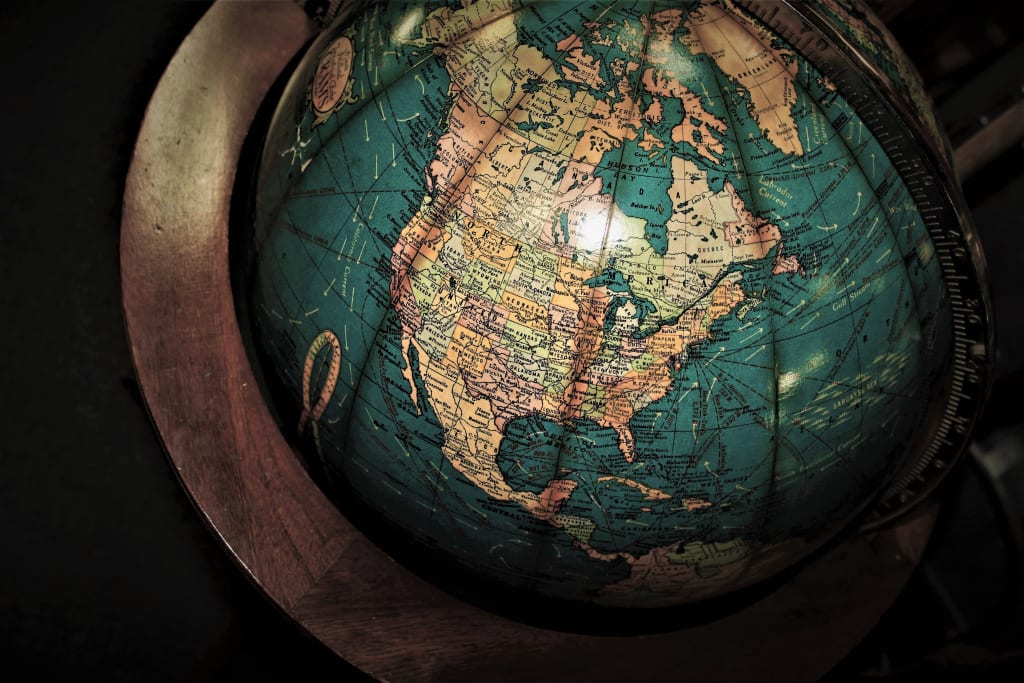America is Exactly Wrong in Its Approach to North Korea
Forget the name calling. We must rethink everything

In any middle school American social studies class, as they look at ancient cultures, the message is repeated and reinforced: With trade comes the exchange of ideas. Through all of history from the Phoenicians to the Romans, from the crusades to the age of exploration, trade changes people. As with Native Americans, sometimes this is tragic in inestimable ways, but often, open trade opens minds. Why then, do we continue to believe that trade sanctions force change? It has literally never worked. As we continue the path of increasing sanctions in the hopes of bringing North Korea to heal, it’s important to remember that this path has never worked and is unlikely to work now. But there is another path which often works: trade.
One story Americans tell themselves is that Ronald Reagan won the Cold War by increasing military spending in a way the Soviet Union could not keep up with. This is patently untrue. They were keeping up just fine, even doing better in some ways because the government was not accountable to its citizens. But when Mikhail Gorbachev came to power in 1988 he instituted two major reforms. First was Glasnost, which means “openness” and with a slight opening of trade with foreign countries, including the USA, as well as a loosening of restrictions on the press, ideas flowed. People open to new thoughts were left unsatisfied with the way things were. Before Glasnost Levi’s Blue Jeans were a very expensive black-market commodity in Russia, now everyone wanted a pair. With Glasnost came Perestroika, (restructuring) providing the vehicle which hurled the Soviet Union toward the cliff. Blue Jeans and the luxuries of capitalist markets did more to end the Cold War than six Reagans.
In Iran, until his overthrow in 1979, the United States supported Mohammad Reza Pahlavi, the Shah of Iran, a secular dictator. However, because there was significant trade, people realized the stunning inequality and rebelled. Unfortunately, as people often do when oppressed they looked to their church for leadership and guidance, bringing about the rise of the famous Ayatollah Khomeini, who upon coming to power instituted theocracy with himself as supreme leader. The U.S. and European powers instituted trade sanctions, cutting off the flow of goods and ideas, and keeping the Ayatollah in power. But President Obama negotiated in an effort to prevent Iran from becoming a nuclear power and as a concession reduced the trade sanctions. As this happened, as goods began flowing, we are seeing small shifts toward secularization and democracy. It’s still not perfect and the new Ayatollah still has to approve of all people seeing office, but as goods move so too does ideas and as the people want more of the good stuff, they will find ways to get it.
Beginning with Nixon opening diplomatic talks with China in 1972 and continuing to now, as trade increases so to do freedoms for Chinese citizens. China is becoming more progressive, more concerned with the world, and richer as the flow of goods and services increases.
To simplify the complex, North Korea wants trade and they want a seat at the table of world politics. They steadily attempt to make themselves more significant on the world stage by building weapons, in a backwards and aggressive attempt at getting those things, they reason that if they are imposing enough the west will have to offer them a seat. Sanctions and threats on our part is exactly the wrong approach. First, a seat at the table would cost no one anything and reduce hostility. When a person or a country just want to be heard, the easiest course of action is to listen! Building nuclear weapons is an attempt to gain respect. What if we just offered respect?
Reducing trade sanctions would enrich the United States as North Koreans bought our goods, while it simultaneously reduced the threat from a country that wants respect and would allow the covert flow of ideas into an insular country. In isolation there is no contradiction to the ideas of the state, but as part of the world community, North Koreans would become exposed to western thought, through its entertainments, its consumerism, and through the interactions of business people.
Now is probably a poor time to ask Americans to take a lesson from history, to learn from mistakes instead of repeating them, to open minds as well as trade borders. Nevertheless, this is the only path with proven success toward the goals of peacefully spreading democracy.
About the Creator
David Bulley
History teacher, writer, storyteller






Comments
There are no comments for this story
Be the first to respond and start the conversation.